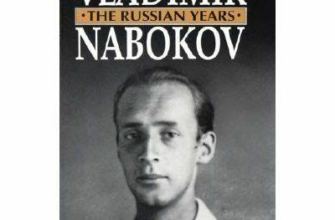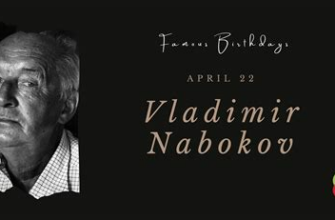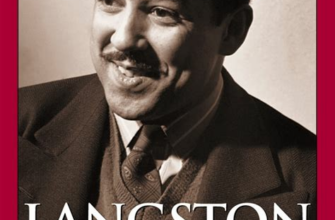Delve into the captivating life story of an iconic enigma, whose melodious creations have enchanted audiences worldwide. This riveting account unveils the journey of an extraordinary artist who has left an indelible mark on the music industry. With an unmistakable voice, unrivaled talent, and a profound dedication to his craft, this individual has become an emblem of artistic brilliance.
Unbeknownst to many, this visionary musician's artistic sanctuary originated far from the grand stages and record-breaking album sales. A series of serendipitous events led him down a path of self-discovery, where he sought solace in the visceral power of songwriting. The raw intensity of his words, infused with poetic prowess, evokes a myriad of emotions, leaving listeners spellbound.
A driving force behind this luminary's success lies in his ability to defy genre conventions and transcend musical boundaries. Often described as a master of innovation, his compositions effortlessly blend elements of rock, jazz, reggae, and classical, paving the way for groundbreaking sounds that refuse to adhere to conventional norms. With each composition, he fearlessly explores uncharted territories, pushing the envelope of musical expression.
But behind the scenes, beyond the pulsating energy of the stage, lies a humble humanitarian, relentless in his pursuit of making a difference. His unwavering commitment to causes close to his heart has sparked social change and brought attention to pressing global issues. In his lyrics, he weaves tales of love, inequality, and environmental consciousness, calling his audience to action and inspiring them to forge a better world.
Embark on an enthralling odyssey through the life and times of this enigmatic figure, delving into the intricacies of his creative process, the challenges he has overcome, and the enduring impact of his artistic legacy. Prepare to be captivated by a narrative that celebrates the boundless spirit and unwavering dedication of one of music's most exceptional minds.
The Early Life and Musical Influences of the Iconic Artist
Exploring the formative years and early experiences that shaped the remarkable career of a renowned musician, this section delves into the captivating world of Sting. From his humble beginnings to his rise to fame, this section uncovers the intriguing journey of an artist who would later become a household name.
In his adolescence, Sting demonstrated an unwavering passion for music, which became his ultimate escape and creative outlet. During this pivotal time, he immersed himself in an eclectic range of genres, drawing inspiration from various musical influences that would shape his unique sound.
The sounds of jazz resonated deeply with Sting, captivating him with its improvisational nature and soulful melodies. He found solace in the rhythms and melodic complexities that jazz offered, eventually incorporating these elements into his own compositions.
Folk music played a significant role in Sting's early musical exploration. The heartfelt storytelling and social consciousness present in folk songs left an indelible mark on his songwriting style, infusing his lyrics with poetic depth and heartfelt narratives.
Hailing from the industrial city of Newcastle, England, Sting was exposed to the raw energy and rebellious spirit of punk rock. The rawness and unrestricted expressiveness of the genre fueled his desire to push boundaries and experiment with unconventional sounds, which would become a defining characteristic of his later works.
Furthermore, classical music also influenced Sting's musical journey, exposing him to the rich complexity and grandeur of symphonies. This exposure fuelled his ambition to incorporate orchestral elements into his compositions, adding a distinct lushness to his sound.
These diverse musical influences, ranging from jazz and folk to punk rock and classical, laid the foundation for Sting's distinctive musical style. They formed the bedrock of his artistic growth and continue to shape his music to this day.
Discovering a Passion for Music and Theatre
A Journey of Self-Expression: This section delves into the early years of the artist's life and explores how he found his true passion for music and theatre. It sheds light on the transformative experiences and influential moments that shaped his artistic identity.
Exploring the World of Sound: Sting's journey into the world of music began at a young age, where he discovered the immense power of rhythm and melody. Through experimenting with various instruments and genres, he cultivated a deep understanding of sound and its ability to evoke emotions.
T he Drama of Theatre: Alongside his musical explorations, Sting's fascination with the dramatic arts grew. His involvement in school plays and local theatre groups allowed him to develop a profound appreciation for storytelling and performance. This exposure to the world of theatre set the stage for his future creative endeavors.
Encountering Influences: As Sting delved deeper into his artistic journey, he encountered various influences that shaped his musical and theatrical approach. His encounters with jazz, classical, and world music genres expanded his horizons and added depth to his compositions.
A World of Inspiration: Sting's passion for music and theatre drew inspiration from a variety of sources, including literature, visual arts, and societal issues. This section explores how these influences became a driving force in his creative process, allowing him to craft music and performances that transcend boundaries.
Finding a Voice: Through the exploration of music and theatre, Sting discovered his unique artistic voice. This section showcases the evolution of his style, from experimenting with different genres to developing a distinct sound that would resonate with audiences around the world.
A Platform for Change: Sting's passion for music and theatre evolved into a powerful platform for social activism. This section explores how he utilized his artistry to address pressing issues such as environmentalism, human rights, and global unity, cementing his status as an influential advocate for change.
Continuing the Legacy: Sting's journey of discovering a passion for music and theatre continues to inspire aspiring artists and creators worldwide. This section reflects on his enduring legacy and the impact he has had on the music and theatre industry, proving that following one's passion can lead to a lifetime of fulfillment and success.
Influences that Shaped Sting's Artistic Style

Exploring the myriad influences that shaped Sting's distinctive artistic style provides a fascinating insight into the evolution of his musical journey. From his early years to his global success as a solo artist, Sting's unique blend of genres and poetic lyrics can be traced back to a range of diverse sources that ignited his creativity and fueled his passion for storytelling through music.
- Folk music traditions: Sting's exposure to the rich folk music traditions of England and Scotland during his formative years contributed to the haunting melodies and introspective storytelling that became hallmarks of his music.
- Jazz influences: Inspired by the improvisational nature of jazz, Sting incorporated elements of this genre into his music, infusing his songs with complex harmonies and unexpected rhythmic patterns.
- Reggae rhythms: The infectious rhythms of reggae had a profound impact on Sting, and the influence of artists such as Bob Marley can be heard in his use of syncopated beats and laid-back grooves.
- Classical music: Sting's exposure to classical music expanded his musical horizons and influenced his sophisticated approach to composition, as evident in his intricate arrangements and orchestral collaborations.
- Literary influences: Sting's love for literature, particularly the works of William Shakespeare and John Donne, infused his songwriting with an intellectual depth, poetic imagery, and an exploration of complex themes.
- World music: Sting's encounters with various world music traditions during his travels enriched his musical palette, allowing him to incorporate elements of African, Indian, and Latin American rhythms and instrumentation into his songs.
These influences, among others, merged and interacted within Sting's artistic sensibilities, leading to the creation of a unique style that defied categorization. By drawing from a wide range of genres and inspirations, Sting crafted a body of work that continues to captivate audiences and defy conventions.
The Formation of The Police and Breakthrough Success
In this section, we will explore the origins and rise to mainstream success of one of the most iconic bands in history, known simply as The Police. This influential group, formed by the talented musician Gordon Sumner, embarked on a journey that would revolutionize the music industry and captivate audiences around the world.
The Police came together in the late 1970s, a time when the music scene was evolving and craving for something new. The trio, consisting of Stewart Copeland on drums, Andy Summers on guitar, and of course, the enigmatic frontman Gordon Sumner, would unite their individual talents to create a sound that would forever change the landscape of rock and pop music.
With their unique blend of reggae, punk, and new wave influences, The Police quickly gained recognition for their distinctive sound and energetic live performances. They embarked on an arduous journey of touring and performing in small venues, gradually building a loyal fan base and gaining the attention of record labels.
It was in 1978 when The Police signed their first record deal and released their debut album, "Outlandos d'Amour." The album garnered critical acclaim and set the stage for their breakthrough success. Songs like "Roxanne" and "Can't Stand Losing You" showcased their signature style, combining catchy melodies with thought-provoking lyrics.
| Years active: | 1977-1986 |
|---|---|
| Genres: | New wave, reggae rock, post-punk |
| Labels: | A&M, Polydor |
| Members: | Gordon Sumner, Stewart Copeland, Andy Summers |
The success of their debut album gave The Police the push they needed to reach new heights. Their subsequent albums, including "Reggatta de Blanc" and "Ghost in the Machine," showcased their evolution as artists and solidified their status as one of the biggest bands of the era.
Their most renowned album, "Synchronicity," released in 1983, became a worldwide sensation. It featured unforgettable hits like "Every Breath You Take" and "Wrapped Around Your Finger," which topped the charts and solidified The Police's place in music history.
However, alongside their incredible success, tensions within the band began to rise. Creative differences and personal conflicts eventually led to The Police's decision to go their separate ways in 1986, marking the end of an era.
Despite their relatively short-lived career, The Police's impact on music cannot be overstated. They pioneered a genre-bending sound that resonated with audiences worldwide and paved the way for countless artists to follow. The formation of The Police and their subsequent mainstream success will forever be remembered as a pivotal moment in music history.
From Small Gigs to Record Deals: The Journey of The Police

Embarking on a remarkable musical voyage, The Police navigated a path from humble beginnings to signing record deals, leaving an indelible mark on the music industry. This section traces their trajectory, capturing the essence of their remarkable journey as they transitioned from intimate performances to securing coveted opportunities in the world of recorded music.
The Early Days: Forging Their Sound
In the early stages of their career, The Police immersed themselves in a process of musical exploration and refinement. Through persistent gigging and dedication, they crafted a distinctive sound that merged elements of rock, reggae, and punk. Building a local following through their energetic and captivating performances, the band began to capture attention and lay the groundwork for their future success.
Small Gigs, Big Breaks
As The Police honed their craft and gained notoriety within their local music scene, their talents attracted the interest of industry insiders. Small gigs at pubs and clubs gradually transformed into coveted spots as supporting acts for renowned bands, opening doors to wider exposure and opportunities. These early experiences allowed the band to refine their stage presence and connect with audiences on a larger scale.
A Record Deal Beckons
Drawing on their growing reputation and inspired performances, The Police captured the attention of record labels. Their unique blend of musical genres became increasingly sought after, and soon a record deal materialized. With the signing of their first contract, The Police embarked on a new chapter, allowing their music to reach a broader audience while solidifying their position as an emerging force in the music industry.
Seeing Success: Chart-Topping Hits
With record deals in place, The Police unleashed a wave of chart-topping hits that resonated with listeners worldwide. Songs like "Roxanne," "Every Breath You Take," and "Message in a Bottle" became anthems of a generation, propelling the band to international acclaim and cementing their status as one of music's most innovative and influential acts.
A Lasting Legacy
The journey of The Police from small gigs to record deals exemplifies the power of determination, talent, and musical exploration. Their ability to combine diverse styles while creating a sound uniquely their own captivated audiences and forever altered the musical landscape. The legacy of The Police continues to inspire aspiring musicians, reminding us of the transformative power of artistic expression and the pursuit of one's musical vision.
The Emergence of The Police and Sting as a Master Songsmith
Explore the fascinating trajectory of the iconic musician known as Sting and his pivotal role in the rise of the legendary band The Police. This section delves into the development of Sting as a prodigious songwriter, unveiling the captivating journey that propelled him to both critical acclaim and commercial success.
Witness as The Police, a groundbreaking musical ensemble, broke barriers and revolutionized the music industry with their fusion of punk, reggae, and new wave sounds. Discover the innovative approach that Sting brought to the band's songwriting process, infusing their music with profound lyricism and a distinctive blend of genres.
Uncover how Sting's unparalleled creativity and versatility set him apart as a songwriter, enabling him to craft timeless hits that resonated with audiences worldwide. From their early hits like "Roxanne" and "Message in a Bottle" to their later chart-toppers like "Every Breath You Take," Sting's mastery of storytelling through song epitomized the band's unique sound and propelled them to international stardom.
Delve into the intricate melodies and thought-provoking lyrics that define Sting's signature style. Witness how his profound introspection and poetic expression allowed him to explore a diverse range of themes, from personal relationships and societal issues to political commentary. From soulful ballads to energetic anthems, Sting's songwriting prowess transcended genres and captivated audiences of all backgrounds.
With rare insights into Sting's inspiration, songwriting process, and the evolution of The Police's sound, this section offers a comprehensive exploration of the rise of both the band and Sting as an extraordinary songwriter. Prepare to embark on a journey through the iconic music that continues to resonate with fans and inspire countless artists to this day.
Solo Journey and Musical Exploration of Sting

Embarking on his solo career, the multifaceted artist formerly known as Sting ventured into uncharted territories, exploring a wide array of musical genres. Through his solo work, he delved into an eclectic mix of styles, pushing the boundaries of his artistry and showcasing his versatility as a musician.
With a dazzling array of musical influences and a penchant for experimentation, Sting's solo career saw him boldly traversing genres such as rock, jazz, reggae, world music, and classical, to name just a few. Breaking free from the constraints of his previous band, Sting fearlessly embraced different sounds, rhythms, and cultural elements to create a body of work that was uniquely his own.
From the energetic and rhythmic rock-infused tunes to the soulful and introspective ballads, Sting's solo discography stands as a testament to his fearless exploration and evolution as an artist. His innate ability to seamlessly navigate through different genres while infusing his lyrics with thought-provoking themes and profound symbolism provided a breath of fresh air in the music industry.
Sting's foray into various genres was not merely a surface-level exploration. On the contrary, he delved deep into the essence of each genre, collaborating with virtuoso musicians and immersing himself in their respective traditions. This dedication and respect for the diverse musical forms resulted in albums that showcased his commitment to authenticity, pushing the boundaries of what was expected from a mainstream artist.
Through his solo journey, Sting continuously challenged himself as an artist, constantly seeking inspiration in unexpected places. His ever-evolving musical palette not only captivated his audience but also demonstrated his enduring influence and relevance in the music world. As he fearlessly explored new genres and sounds, his solo career became a testament to the infinite possibilities of artistic expression.
FAQ
Who is Gordon Sumner?
Gordon Sumner is a British musician and actor, better known by his stage name Sting. He gained fame as the lead vocalist and bassist of the rock band The Police, and later went on to have a successful solo career.
What are Sting's most popular songs?
Sting has many popular songs throughout his career. Some of his most well-known tracks include "Every Breath You Take," "Fields of Gold," "Englishman in New York," "Message in a Bottle," and "Roxanne." These songs have become classics and are still beloved by fans worldwide.
How did Sting start his music career?
Sting started his music career as a member of the band The Police, which formed in 1977. The band quickly gained popularity with their unique blend of rock, reggae, and punk influences. Sting's distinctive voice and songwriting skills played a significant role in their success. After the band disbanded in the mid-1980s, Sting embarked on a solo career and continued to produce hit songs.
Has Sting won any awards?
Yes, Sting has received numerous awards for his work in the music industry. He has won 17 Grammy Awards, including Best Male Pop Vocal Performance and Song of the Year. Sting has also been recognized with several Brit Awards, an Emmy Award, and an Academy Award nomination for his contributions to film soundtracks.
Aside from music, what other activities is Sting involved in?
Sting is known for his activism and involvement in various humanitarian causes. He has been a strong advocate for environmental sustainability and has worked with organizations such as Amnesty International and the Rainforest Foundation. Sting is also a successful actor and has appeared in several films and stage productions throughout his career.



